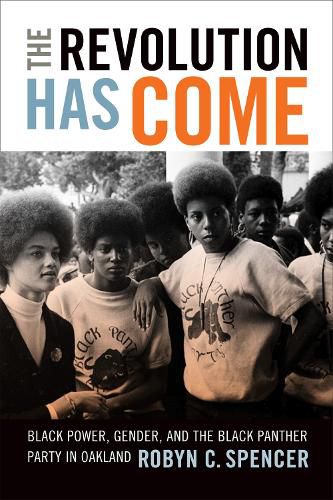Readings Newsletter
Become a Readings Member to make your shopping experience even easier.
Sign in or sign up for free!
You’re not far away from qualifying for FREE standard shipping within Australia
You’ve qualified for FREE standard shipping within Australia
The cart is loading…






In The Revolution Has Come Robyn C. Spencer traces the Black Panther Party’s organizational evolution in Oakland, California, where hundreds of young people came to political awareness and journeyed to adulthood as members. Challenging the belief that the Panthers were a projection of the leadership, Spencer draws on interviews with rank-and-file members, FBI files, and archival materials to examine the impact the organization’s internal politics and COINTELPRO’s political repression had on its evolution and dissolution. She shows how the Panthers’ members interpreted, implemented, and influenced party ideology and programs; initiated dialogues about gender politics; highlighted ambiguities in the Panthers’ armed stance; and criticized organizational priorities. Spencer also centers gender politics and the experiences of women and their contributions to the Panthers and the Black Power movement as a whole. Providing a panoramic view of the party’s organization over its sixteen-year history, The Revolution Has Come shows how the Black Panthers embodied Black Power through the party’s international activism, interracial alliances, commitment to address state violence, and desire to foster self-determination in Oakland’s black communities.
$9.00 standard shipping within Australia
FREE standard shipping within Australia for orders over $100.00
Express & International shipping calculated at checkout
In The Revolution Has Come Robyn C. Spencer traces the Black Panther Party’s organizational evolution in Oakland, California, where hundreds of young people came to political awareness and journeyed to adulthood as members. Challenging the belief that the Panthers were a projection of the leadership, Spencer draws on interviews with rank-and-file members, FBI files, and archival materials to examine the impact the organization’s internal politics and COINTELPRO’s political repression had on its evolution and dissolution. She shows how the Panthers’ members interpreted, implemented, and influenced party ideology and programs; initiated dialogues about gender politics; highlighted ambiguities in the Panthers’ armed stance; and criticized organizational priorities. Spencer also centers gender politics and the experiences of women and their contributions to the Panthers and the Black Power movement as a whole. Providing a panoramic view of the party’s organization over its sixteen-year history, The Revolution Has Come shows how the Black Panthers embodied Black Power through the party’s international activism, interracial alliances, commitment to address state violence, and desire to foster self-determination in Oakland’s black communities.